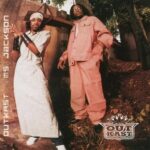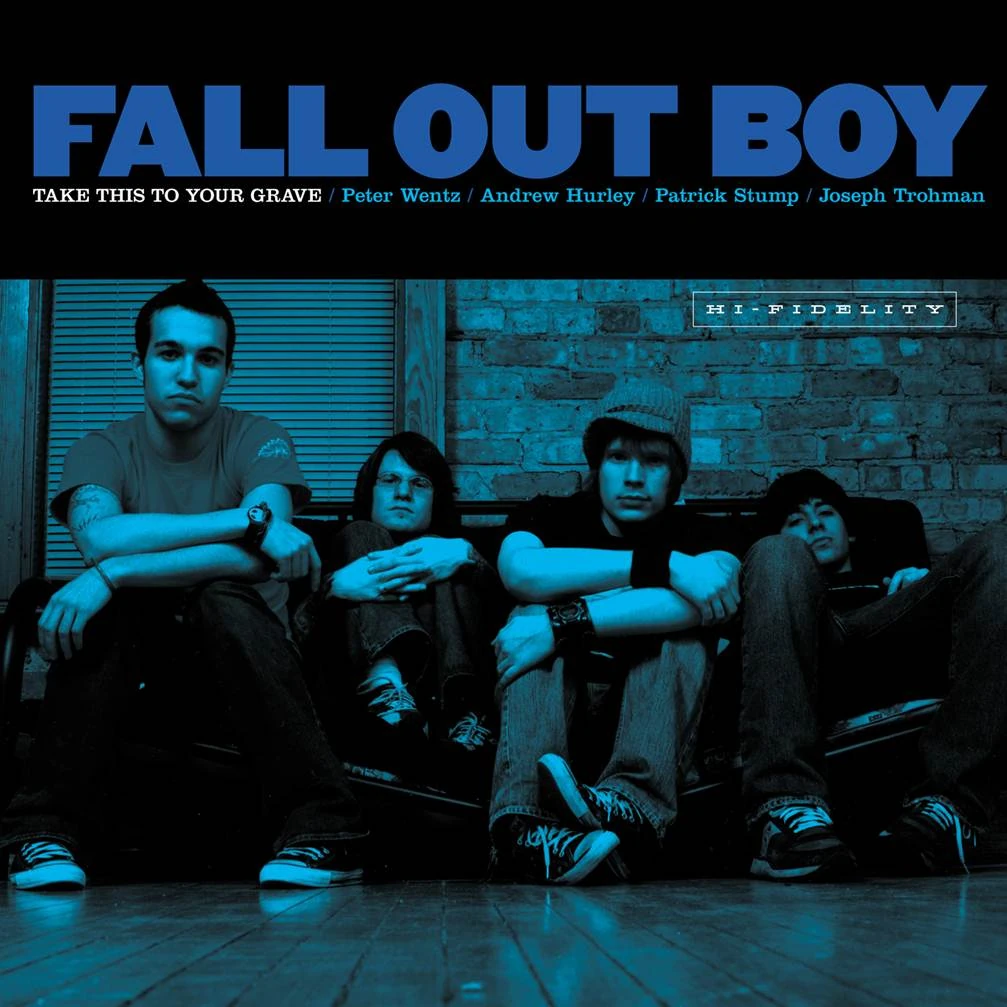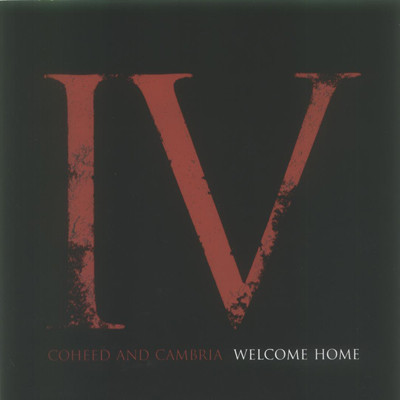 When Outkast released “Ms. Jackson” in October 2000, it wasn’t just another single from a hip-hop duo at the top of their game — it was a full-blown cultural reckoning disguised as a smooth, confessional groove. The song was personal yet universal, soulful yet futuristic, funny yet heartbreaking. It blurred genre lines and emotional boundaries in a way few tracks before or since have managed. Twenty-five years later, “Ms. Jackson” still feels like a moment — not just a song, but a window into the vulnerability, creativity, and humanity that made Outkast one of the most innovative acts of their era.
When Outkast released “Ms. Jackson” in October 2000, it wasn’t just another single from a hip-hop duo at the top of their game — it was a full-blown cultural reckoning disguised as a smooth, confessional groove. The song was personal yet universal, soulful yet futuristic, funny yet heartbreaking. It blurred genre lines and emotional boundaries in a way few tracks before or since have managed. Twenty-five years later, “Ms. Jackson” still feels like a moment — not just a song, but a window into the vulnerability, creativity, and humanity that made Outkast one of the most innovative acts of their era.
This wasn’t about flexing or fronting. This was about feeling. And for a hip-hop single to dominate the charts with pain, guilt, and apology as its emotional core was revolutionary.
The Story Behind the Sorry
“Ms. Jackson” came from real life. André 3000 wrote it after his relationship with singer Erykah Badu ended, addressing her mother directly in song. It was a love letter, an apology, and a public airing of private wounds. The honesty of that origin story gave the song a depth that transcended hip-hop’s usual bravado. When André sang, “I’m sorry, Ms. Jackson, I am for real / Never meant to make your daughter cry,” it wasn’t metaphorical — it was confessional poetry.
What made the song so gripping was that it never felt exploitative or bitter. Instead, it was reflective, even self-deprecating. André wasn’t painting himself as the hero; he was acknowledging his flaws, his mistakes, and the pain that came with them. Big Boi, meanwhile, added his own verse from the perspective of a father navigating the complexities of co-parenting. His delivery — sharp, grounded, and emotionally raw — gave the song its counterweight, transforming it from a personal apology into a broader commentary on love, family, and growing up.
A Masterclass in Production
Outkast’s production team, Earthtone III (comprised of André 3000, Big Boi, and Mr. DJ), crafted a soundscape that felt both soulful and cosmic. Built around a descending piano line and anchored by a tight, syncopated beat, “Ms. Jackson” shimmered with texture. The song blended hip-hop’s rhythmic grit with the warmth of classic soul, the trippiness of psychedelia, and the surreal digital polish that would define Stankonia, the album it lived on.
The production was deceptively simple. Every layer mattered — from the subtle bass thumps to the gliding synths to the haunting vocal harmonies that echoed behind the chorus. The beat had bounce, but it also had melancholy. You could dance to it, but you could also cry to it. That’s the magic of “Ms. Jackson”: it worked on the dance floor and on the couch at 2 a.m.
Even the vocal mix felt revolutionary for its time. André’s voice was raw and slightly distorted, almost fragile in its delivery, while Big Boi’s verses punched clean through the mix, crisp and confident. The dynamic contrast mirrored the emotional push and pull of the lyrics — regret versus responsibility, chaos versus clarity.
The Lyrics That Hit Home
“Ms. Jackson” isn’t just a song about a breakup; it’s a song about consequences. It’s about how love can ripple outward, affecting families, parents, and children. The lyrics are introspective without being pretentious, heartfelt without being sentimental.
André’s first verse sets the tone immediately:
“Yeah, this one right here goes out to all the baby’s mamas’ mamas,
Mamas, mamas, baby mamas’ mamas.”
It’s playful and poetic — a phrase that instantly became iconic. But beneath the humor lies pain and reflection. André isn’t mocking; he’s recognizing the complexity of familial love and generational tension. He’s saying, “This is bigger than me.”
Then comes the line that defines the song:
“I’m sorry, Ms. Jackson, I am for real
Never meant to make your daughter cry.”
The apology is so direct it almost hurts. André doesn’t hide behind metaphor or machismo. He just owns it. That simplicity — that lack of irony — made the song hit even harder.
Big Boi’s verse, meanwhile, brings realism to the emotional swirl. His lines about visitation rights, court battles, and broken communication ground the song in the struggles of real-life relationships. He raps:
“You can plan a pretty picnic, but you can’t predict the weather.”
That one line became one of the most quoted in hip-hop history, a homespun proverb about how even the best intentions can fall apart. It’s profound because it’s true. Relationships — romantic or otherwise — are unpredictable. You can prepare for everything but heartbreak.
A Cultural Touchstone
“Ms. Jackson” hit number one on the Billboard Hot 100 in early 2001, making Outkast one of the first Southern hip-hop acts to top the chart with a deeply emotional track. But its impact went far beyond radio success. It changed what a rap song could be.
In an era dominated by bling culture and braggadocio, “Ms. Jackson” was intimate, introspective, and unapologetically human. It proved that vulnerability could be powerful. It made sincerity cool again.
It also showcased Outkast’s uncanny ability to bridge audiences. The song resonated with rap fans, R&B listeners, alternative kids, and even suburban pop audiences. MTV and VH1 had it in constant rotation, and its crossover appeal introduced millions to Southern hip-hop’s more poetic side.
But what made “Ms. Jackson” timeless wasn’t its chart position — it was its honesty. The song didn’t lecture or moralize; it simply told the truth about love, loss, and regret. Everyone could see themselves in it, whether as the lover, the parent, or the one caught in between.
The Video: Surreal, Symbolic, and Iconic
The music video for “Ms. Jackson” remains one of Outkast’s most memorable. Set in a crumbling, waterlogged house filled with animals — owls, dogs, cats, frogs — it’s both whimsical and eerie. The setting perfectly matches the song’s emotional landscape: beauty in decay, chaos in calm.
André 3000, dressed in a turban and robes, looks like a shaman lost in a suburban dream, while Big Boi exudes the grounded confidence of a man who’s seen it all. The imagery feels like something between a Southern Gothic painting and a fairy tale gone wrong. Rain pours through the roof, lightning flashes outside, and yet there’s a strange peace in the wreckage.
The house, of course, is metaphorical — a representation of the broken home at the center of the story. Outkast doesn’t play it straight; they turn the pain into performance art. The result is one of the most striking videos of the early 2000s, as strange as it is soulful.
Outkast’s Duality: The Genius of André and Big Boi
What made “Ms. Jackson” — and Outkast in general — so special was the creative tension between its two members. André 3000 was the visionary, the dreamer, the poet reaching for something spiritual. Big Boi was the realist, the street philosopher who kept things grounded.
In “Ms. Jackson,” that dynamic is perfectly balanced. André’s verses float; Big Boi’s punch. André confesses; Big Boi defends. André seeks forgiveness; Big Boi demands fairness. Together, they capture the full emotional spectrum of a relationship gone wrong — from heartbreak to anger to acceptance.
Their chemistry is electric. They don’t contradict each other; they complement each other. It’s a push and pull that turns the song into a conversation rather than a monologue. And that, ultimately, is what makes “Ms. Jackson” feel so alive — it’s not one voice, it’s two perspectives wrestling toward truth.
The Stankonia Context
“Ms. Jackson” sits at the heart of Stankonia, Outkast’s most adventurous and experimental album. Released in 2000, it was a collision of styles — funk, hip-hop, rock, gospel, electronica — all filtered through the duo’s eccentric lens. The album was chaotic and brilliant, but “Ms. Jackson” provided its emotional anchor.
While other tracks on Stankonia — like “B.O.B.” and “So Fresh, So Clean” — exploded with futuristic energy, “Ms. Jackson” looked inward. It grounded the album’s experimentation in something deeply human. It was proof that even amid their wildest creative flights, Outkast never lost their emotional core.
The song’s placement also reflected Outkast’s maturity. After years of pushing boundaries, “Ms. Jackson” showed they could strip things down to raw emotion and still make it feel new. It was futuristic soul — classic in its sentiment, cutting-edge in its sound.
Legacy and Influence
In the years since its release, “Ms. Jackson” has only grown in stature. It’s been covered by artists across genres — indie bands, soul singers, even orchestras. It’s been sampled, referenced, and parodied endlessly. But what’s remarkable is how well it’s aged.
Modern artists like Kendrick Lamar, Anderson .Paak, and Frank Ocean owe a debt to “Ms. Jackson.” The idea that hip-hop could be emotionally vulnerable, that masculinity could coexist with remorse and reflection — that door was kicked open by this song.
It also proved that Southern hip-hop wasn’t monolithic. Before Outkast, the South was often stereotyped as less lyrical or less introspective than its coastal counterparts. “Ms. Jackson” shattered that notion, showcasing storytelling and emotional intelligence that rivaled anything coming out of New York or L.A.
Even today, the song’s hook remains one of the most recognizable in pop music. Its emotional honesty still resonates. Whether you’ve been through a breakup, dealt with family tension, or just messed up and wished you could take something back — “Ms. Jackson” speaks to you.
Timeless Regret, Eternal Groove
At its core, “Ms. Jackson” is about love — messy, imperfect, deeply human love. It’s about how relationships don’t just connect people; they connect families, histories, and futures. It’s about how love can hurt, heal, and haunt all at once.
But what makes the song endure is its compassion. Even amid pain and frustration, there’s no venom here. André and Big Boi both approach the subject with empathy and self-awareness. They’re not blaming; they’re reflecting.
“Ms. Jackson” remains a masterpiece because it refuses to simplify. It’s funny and sad, smooth and rough, confident and uncertain — all at the same time. It captures the contradictions of real life, wrapping them in one of the most addictive beats ever made.
Twenty-five years later, the song still feels fresh, still feels necessary. Because no matter how much the world changes, there will always be heartbreak, misunderstanding, and that eternal human desire to say, “I’m sorry. I am for real.”


